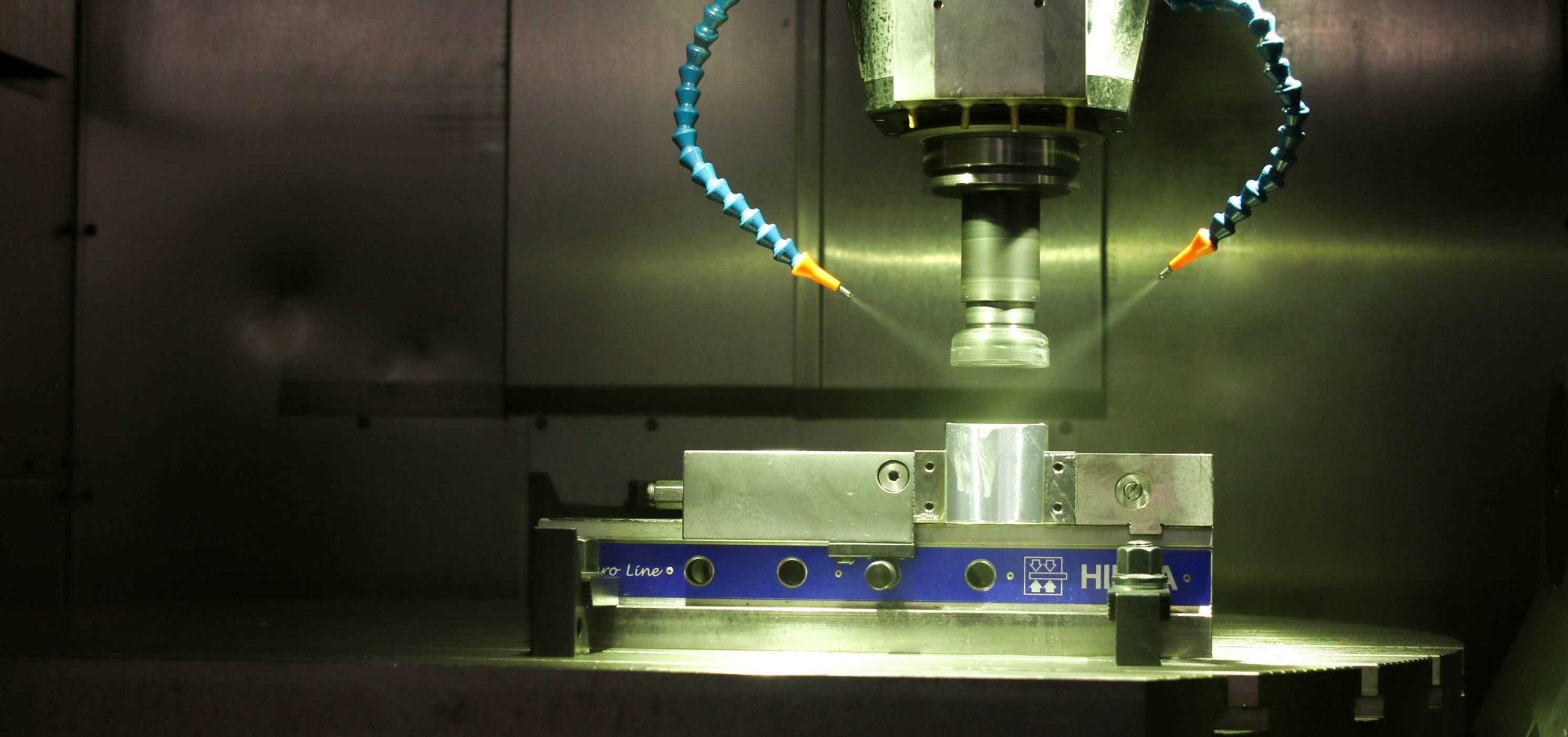Design of a testbed for sustainable milling with minimum quantity lubrication
MQL, often referred to as near-dry machining, is the process of using a small amount of metal working fluid to achieve lubrication and cooling of both the tool and the material being processed in a machining operation. In contrast to MQL, traditional wet machining uses in some cases up to a hundred times the amount of lubricant, i.e. the lubricant volume being used is litres per minute instead of millilitres per hour.

Background
MQL, often referred to as near-dry machining, is the process of using a small amount of metal working fluid to achieve lubrication and cooling of both the tool and the material being processed in a machining operation. In contrast to MQL, traditional wet machining uses in some cases up to a hundred times the amount of lubricant, i.e. the lubricant volume being used is litres per minute instead of millilitres per hour. Thus, MQL is very helpful in improving the environmental impact of machining processes. So far, MQL has been implemented for drilling, turning and grinding operations. However, MQL is still not widely used in milling operations, and faces challenges in terms of the implementation perspective. There are a range of problems and needs in research that currently exist. It remains unclear if MQL in milling can be substituted for traditional lubrication and cooling techniques with similar process qualities.
Summary
The project “Design of a testbed for sustainable milling with minimum quantity lubrication” addresses the topic of minimum quantity lubrication (MQL). Several major European companies indicated that about 16% of total manufacturing expenses are related to cutting fluid. In this area, MQL could help to reduce the amount of lubricant used by up to 95%. Thus, MQL can help to achieve a considerable cost reduction in the long term, decrease the environmental impact and provide better working conditions for machine operators. MQL may also influence surface roughness, tool wear, cutting forces and other factors that affect the cost and energy consumption.
After a preliminary research, it was observed that the literature on MQL in milling is very limited compared to other machining processes where more studies had been pursued. This is the main reason to conduct this study, which aims to design an MQL testbed for milling, which could then be used for further research in order to help implement MQL in the automotive industry.
The project will be carried out for a six-month period by the Powertrain Manufacturing for Heavy Vehicles Application Lab (PMH) as the coordinator and main applicant and KTH’s Department of Production Engineering (KTH IIP) as the research partner. The following companies will be involved in the project: Volvo, Sandvik, Oerlikon, Erasteel and Accu-Svenska AB.
Results
The project will result in a detailed design of a testbed for milling with MQL as well as assessment criteria for the validation of the technology at a later stage. The report will encompass necessary CAD designs and specifications of the equipment that will be part of the testbed including process parameters and a cost analysis. After the completion of this project, the generated results can later be used in a full-scale project that has the aim of manufacturing, procuring and setting-up the testbed. This full-scale project can then be used to validate the MQL in milling technology.
Contact person

